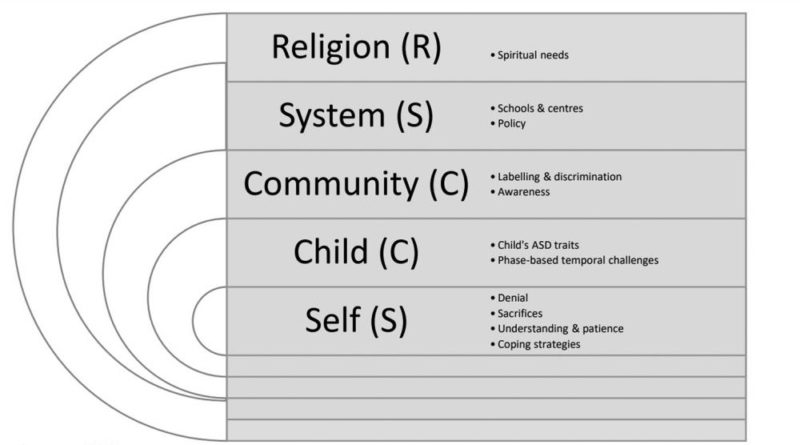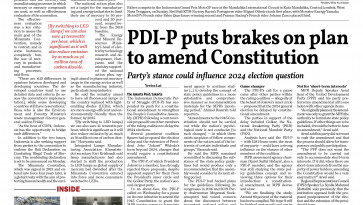LIFE+STYLE -FAMILY | Understanding parenting challenges in families with autistic children
.

NOWADAYS, the awareness towards children with learning difficulties, especially autistic ones, has generally increased among parents.
Nevertheless, it is not easy for parents with these special children. Let us first look at the definition of autism.
Autism or autism spectrum disorder (ASD) is a severe childhood developmental disorder caused by differences in the brain.
According to data from Health Ministry in 2021, a total of 589 children aged 18 and below are diagnosed with ASD which also shows an increase of five per cent from 562 children in 2020.
Due to the increasing number, it is thus important to delve into the states and circumstances of parents who are the main pillars of the family.
Although comparatively the awareness towards the issue of autism has risen, it is nonetheless a very tough journey, especially for parents with newly diagnosed ASD children.
These parents will need to re-navigate their parenting roles and responsibilities. With this in mind, the author would like to share the SCCS-R Model of Parenting Challenges faced by fathers, mothers or caretakers of autistic children.
This model, which is developed based on the author’s small-scale research, may assist parents in learning, anticipating and understanding the hardships of raising an autistic child.
It is discovered that parenting experiences and challenges could be segregated into five distinct tiers encompassing: (1) Self, (2) Child, (3) Community, (4) System and (5) Religion, which represent experiences with regard to the challenges that parents of autistic children would go through starting with the parent’s self, the child, the larger society, and system, as well as religion.
Tier 1: Self (S)
The first tier illustrates the trials of battling with parents’ own selves.
The very first hurdle is to readily accept the diagnosis made by the doctors that their child is autistic.
Once parents pass this hurdle, they will then make huge sacrifices — emotionally, physically and financially — all the way through their lives.
On top of that, parents will need to have a high level of understanding, knowledge and patience regarding ASD.
Within the Self tier too, parents will need to employ suitable coping strategies in order to handle many stressors in taking care of their autistic children.
Even though there is a scarce discussion regarding this perspective faced by parents as it is usually blinded by the focus put on the child, acknowledging the first tier of Self is important because parents are the prime caregiver of the children.
If parents’ feelings are ignored, it will be impossible for them to care for their children.
Tier 2: Child (C)
The second tier shifts to the autistic child. There are two important aspects under this heading: (1) autistic traits of the child and (2) phase-based temporal challenges.
The former includes one-way communication, preference to be alone, aloof, participation in silence, routine-based behaviour, attention to detail, obsessions and tantrums while the latter refers to the various challenges throughout the journey of parenthood.
ASD, as the term indicates, is a spectrum of disorders that will vary from child to child. Thus, parents may find that the challenges related to their child’s behaviours are unpredictable and never-ending.
Tier 3: Community (C)
Next, moving further from the Self and the Child, the challenges come from the Community.
Parents will further face tests from people around them.
Due to a lack of awareness in society, many still do not understand the nature and hardships of having autistic children.
This has led to people labelling, stereotyping and sometimes up to the extent of discriminating against autistic children.
This has added more challenges to the parents, who are struggling to even manage their own self and their child’s troubles but have to face the community that seems to be ignorant and “heartless”.
Tier 4: System
In tier 4, the challenges come from the bigger view which is the system and the policies.
For example, parents have difficulties searching for suitable schools and centres for their ASD child.
Supportive schools or centres are vital to assist autistic children’s self-confidence, self-concept as well as social development.
Without teachers who are experts in special children, it is hard for parents to enter the current education system, including deciding what is best for the children in many aspects i.e, teaching and learning environment, learning objectives and assessments.
Tier 5: Religion
With the many problems and challenges to cope with, parents are found to resort to God and religion.
When they are often left exhausted and shattered, parents muster their courage and rebuild themselves by accepting their fate.
By believing and embracing their religious belief, and submitting to the Almighty or God, parents will stay strong and sail through their quest in taking care of their autistic children.
With positive and optimistic thinking upheld through their religion, parents positively change the feelings of being unfortunate parents into better parents who put up genuine fights for their children.
This SCCS-R model can assist parents — both fathers and mothers — especially those who have just known about the condition of
their children.
Being aware of the five tiers can help them to learn, anticipate and understand the hardships of nurturing and caring for an autistic child.
Recognising the distinct tiers will also reduce parents’ overwhelming, devastating mental state and help to manoeuvre them in facing each phase in a more sensible and prepared approach.
Striding in baby steps, parents can first Self-discover themselves, then proceed to know the Child, Community and advance to the System, and finally be harmonised as well as perfected by a firm belief in Religion.
With this, parents of ASD children would be more capable when handling stress and can stay sensible and wise in caring for their special child.
.
Dr Hazlina Abdullah is a senior lecturer at Universiti Sains Islam Malaysia. Comments: [email protected]


 Memento Maxima Digital Marketing
Memento Maxima Digital Marketing Ads by: Memento Maxima Digital Marketing
Ads by: Memento Maxima Digital Marketing






